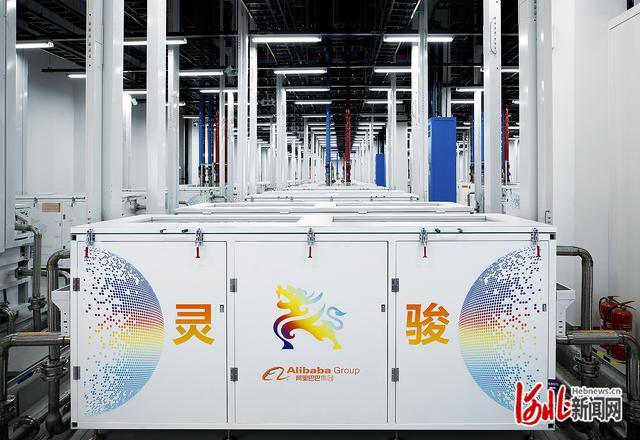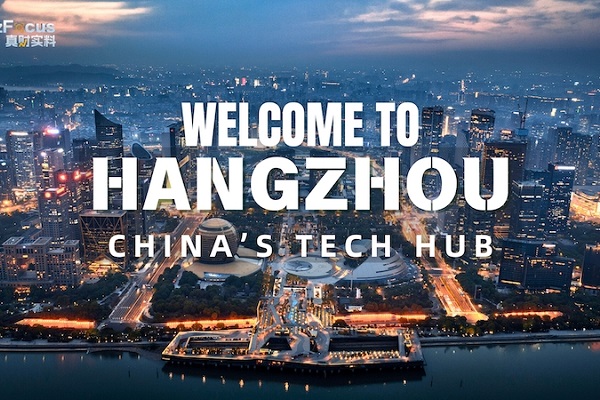Alibaba Cloud launches world's largest intelligent computing center

The Zhangbei Super Intelligent Computing Center in North China's Hebei province is officially launched on Aug 30. [Photo/hebnews.cn]
Alibaba Cloud, the cloud service arm of Hangzhou-based tech giant Alibaba, announced the official launch of its Zhangbei Super Intelligent Computing Center in North China's Hebei province on Aug 30, local media outlets reported.
The center, with a designed artificial intelligence computing power of 12 EFLOPS, or 12 quintillion floating-point operations per second, will surpass Google's 9 EFLOPS and Tesla's 1.8 EFLOPS and become the largest intelligent computing center in the world.
It will be able to provide powerful intelligent computing services for AI exploration applications including large-scale AI model training, autonomous driving, and spatial geography.
The center will be powered by the Feitian Intelligent Computing Platform, a full-stack intelligent computing solution announced by Alibaba Cloud the same day that can provide both public and private cloud access, offering powerful intelligent computing services for scientific research, enterprises, and institutions.
Through advanced technical architecture, the platform has achieved 90 percent parallel computing efficiency of 1,000 cores, much higher than the traditional 40 percent, and is able to increase the utilization rate of computing power resources more than three-fold, AI training efficiency 11-fold, and reasoning efficiency six-fold.
Alibaba Cloud also set up an intelligent computing center in Ulanqab, North China's Inner Mongolia autonomous region, with an AI computing capacity of 3 EFLOPS, or 3 quintillion floating-point operations per second.
The two supercomputing centers are expected to achieve breakthroughs in both scale and efficiency. They will serve cutting-edge intelligence applications such as large-scale AI model training, remote sensing, digital avatars, autonomous driving, life sciences, new drug research and development, and the metaverse.
-
Xixi Wetland invites visitors to Huazhao Festival
March 25, 2025
-
Hangzhou sets standard for concert hosting
March 19, 2025
-
What is making Hangzhou the new tech powerhouse of China?
March 10, 2025
-
Inside Hangzhou: China's high-tech dream factory
March 12, 2025



